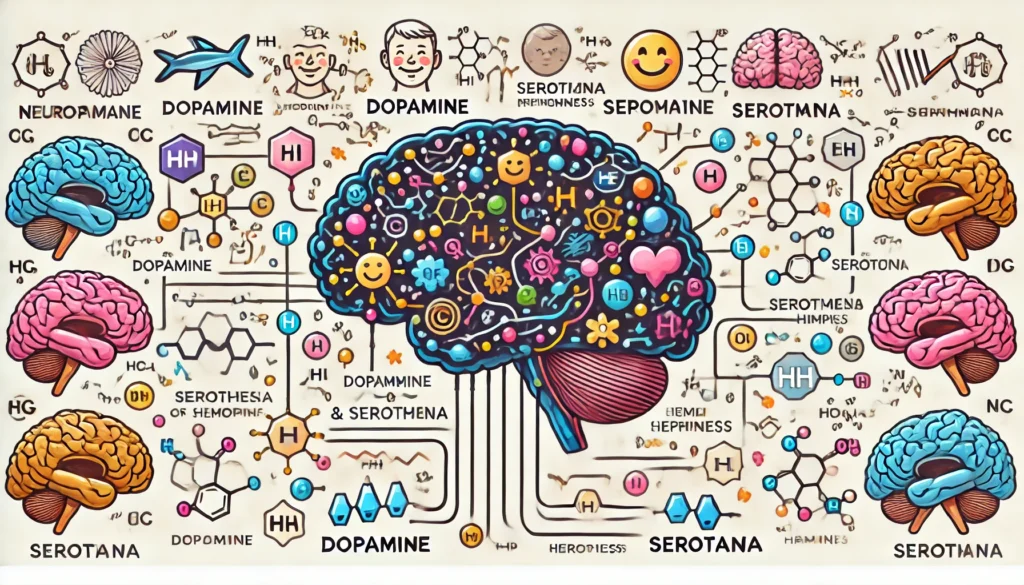
Introduction
In our fast-paced world, the pursuit of happiness often takes a backseat. The concept of Wave_of_Happy_ captures those moments of pure bliss, urging us to understand and cultivate these waves intentionally. This comprehensive guide delves into the science, psychology, and practical steps to achieve and sustain happiness.

Understanding Wave_of_Happy_
Happiness is a multifaceted state of well-being characterized by positive emotions and life satisfaction. It varies greatly across cultures and individuals, influenced by both external circumstances and internal states.
The Science Behind Happiness

Happiness is regulated by neurotransmitters like dopamine and serotonin, which play crucial roles in mood regulation. The brain’s reward system, environmental factors, and personal choices all significantly impact our levels of happiness.
- Neurotransmitters: Dopamine and serotonin are key players in the brain’s happiness pathways. Dopamine is associated with reward and motivation, while serotonin is linked to mood stability and well-being.
- Environmental Factors: Our surroundings, including social interactions, living conditions, and nature exposure, influence our happiness.
- Personal Choices: Daily habits, physical health, and mental practices contribute to overall happiness.
Exploring the Wave_of_Happy_ Phenomenon

Moments of joy can be spontaneous or triggered by specific events such as achieving a goal, spending time with loved ones, or simply enjoying nature. Identifying these triggers and intentionally creating these moments can enhance overall well-being.
Psychological Factors Influencing Happiness
- Personality Traits: Optimism, resilience, and gratitude are traits that significantly impact happiness.
- Social Relationships: Strong social connections are one of the most reliable predictors of happiness. Supportive relationships provide emotional support and a sense of belonging.
Environmental Influences on Happiness

Our environment plays a crucial role in our well-being. Creating a supportive and nurturing space, whether through decluttering or spending time outdoors, can have a profound impact on our happiness.
- Living Environment: Clean, organized spaces reduce stress and promote peace of mind.
- Nature: Regular exposure to natural environments has been shown to reduce stress and improve mood.
The Importance of Emotional Intelligence
Emotional intelligence (EI) involves recognizing, understanding, and managing our own emotions, as well as those of others. High EI is linked to better relationships, improved mental health, and increased happiness.
- Self-awareness: Understanding one’s own emotions is the foundation of EI.
- Self-regulation: The ability to manage emotions appropriately.
- Motivation: Using emotions to pursue goals.
- Empathy: Recognizing and understanding others’ emotions.
- Social Skills: Managing relationships effectively.
Pursuing Meaning and Purpose
Living a meaningful life aligned with our core values brings deep satisfaction and joy. Engaging in activities that are intrinsically motivating enhances our sense of purpose and happiness.
- Goal Setting: Setting and achieving personal goals gives a sense of accomplishment and direction.
- Values Alignment: Ensuring that daily actions reflect personal values leads to a more fulfilling life.
Mindfulness and Happiness
Mindfulness practices, such as meditation and deep breathing, reduce stress and enhance well-being by keeping us present and fully engaged with our experiences.
- Meditation: Regular meditation practice has been shown to increase positive emotions and decrease stress.
- Mindful Living: Incorporating mindfulness into daily activities promotes a deeper connection with the present moment.
Gratitude and Positive Psychology
Practicing gratitude shifts our focus from deficiencies to abundance, significantly increasing happiness and life satisfaction.
- Gratitude Journals: Writing down things we are grateful for can enhance overall happiness.
- Positive Interventions: Engaging in activities that promote positive emotions boosts well-being.
Overcoming Obstacles to Happiness
Negative thought patterns and unresolved emotional issues can impede happiness. Strategies such as cognitive-behavioral therapy (CBT) and mindfulness help in overcoming these barriers.
- Cognitive-Behavioral Therapy: CBT techniques help in identifying and changing negative thought patterns.
- Mindfulness: Practicing mindfulness helps in managing stress and negative emotions.
The Link Between Physical Health and Happiness
Physical health has a direct impact on emotional states. Regular exercise, a nutritious diet, and adequate sleep are essential for maintaining happiness.
- Exercise: Physical activity releases endorphins, which are natural mood lifters.
- Nutrition: A balanced diet supports overall well-being.
- Sleep: Adequate rest is crucial for emotional regulation and cognitive function.
Finding Balance in Life
Achieving a work-life balance by setting boundaries and prioritizing self-care is crucial for sustained happiness. This involves managing time effectively and ensuring that personal needs are met.
- Time Management: Prioritizing tasks and setting realistic goals help in maintaining balance.
- Self-Care: Engaging in activities that promote physical and mental health is essential for well-being.
Cultivating Resilience
Resilience helps in bouncing back from adversity. Developing coping strategies and a growth mindset enhances our ability to navigate life’s challenges.
- Coping Strategies: Effective coping mechanisms help in managing stress and overcoming obstacles.
- Growth Mindset: Viewing challenges as opportunities for growth fosters resilience.
Building Strong Social Connections
Strong social connections are a key component of happiness. Engaging with others, forming deep relationships, and maintaining a supportive social network can significantly enhance well-being.
- Community Involvement: Participating in community activities and groups provides a sense of belonging and support.
- Quality over Quantity: Having a few close, meaningful relationships is more beneficial than numerous superficial connections.
The Role of Financial Stability in Happiness
While money itself doesn’t buy happiness, financial stability can reduce stress and provide opportunities for fulfilling experiences. Managing finances wisely and living within means contribute to a sense of security and well-being.
- Budgeting: Creating and adhering to a budget helps in managing finances effectively.
- Saving and Investing: Planning for the future through saving and investing can provide peace of mind.
The Impact of Technology on Happiness
Technology has a dual impact on happiness. While it offers opportunities for connection and entertainment, excessive use can lead to isolation and stress. Finding a healthy balance is crucial.
- Digital Detox: Taking breaks from technology can reduce stress and improve mental health.
- Mindful Use: Using technology intentionally and purposefully enhances its positive impact.
Engaging in Creative Activities
Creative activities, such as art, music, writing, and crafting, can significantly boost happiness by providing an outlet for expression and reducing stress.
- Art and Music: Engaging in art and music can be therapeutic and enhance emotional well-being.
- Writing and Journaling: Writing about experiences and emotions helps in processing and understanding them.
Exploring Nature and Outdoor Activities
Spending time outdoors and engaging in nature-related activities can have a profound impact on happiness. Nature offers a respite from daily stressors and promotes physical and mental well-being.
- Hiking and Walking: Regular walks in natural settings can improve mood and reduce stress.
- Gardening: Gardening provides a sense of accomplishment and connection with nature.
Volunteering and Helping Others
Helping others and engaging in volunteer work fosters a sense of purpose and community. Acts of kindness and altruism are strongly linked to increased happiness and life satisfaction.
- Volunteering: Regular volunteering provides opportunities to connect with others and contribute to the community.
- Acts of Kindness: Small, daily acts of kindness can significantly boost mood and well-being.
Conclusion
The pursuit of happiness is a lifelong journey. By understanding and implementing strategies to cultivate joy, we can experience more frequent waves of happiness, leading to a more fulfilling and content life.
Frequently Asked Questions (FAQs)
- What is the main focus of the article Wave_of_Happy_?
The article explores various factors contributing to sustained happiness and well-being.
- Why is happiness considered essential?
Happiness positively impacts mental, emotional, and physical health, enhancing resilience and fostering meaningful connections.
- How is happiness defined?
Happiness is a state of well-being characterized by positive emotions, satisfaction, and a sense of fulfillment.
- What scientific aspects are discussed?
The article discusses the neurobiological mechanisms of happiness, including the roles of dopamine and serotonin.
- How can individuals cultivate happiness?
By identifying triggers, understanding psychological factors, and adopting mindfulness and gratitude practices.
- What role do environmental influences play?
The article explores how surroundings and creating a conducive environment affect happiness.
- What is emotional intelligence, and how does it relate to happiness?
Emotional intelligence involves managing emotions effectively, leading to stronger relationships and greater happiness.
- How can individuals find meaning and purpose?
By setting goals aligned with personal values and engaging in fulfilling activities.
- What mindfulness practices are recommended?
Meditation, deep breathing, and other mindfulness-based interventions enhance well-being.
- How does gratitude contribute to happiness?
Practicing gratitude increases happiness by shifting focus to positive aspects of life.
- What obstacles to happiness are addressed?
Negative thought patterns and unresolved emotional issues are common barriers to happiness.
- What is the link between physical health and happiness?
Physical health supports emotional well-being through regular exercise, a balanced diet, and sufficient sleep.
- How can individuals achieve work-life balance?
By setting boundaries, prioritizing self-care, and aligning daily actions with core values.
- What is resilience, and how can it be cultivated?
References
1. Harvard Health Publishing. “Positive Psychology: Harnessing the Power of Happiness, Mindfulness, and Inner Strength.” Available at:Harvard Health.






